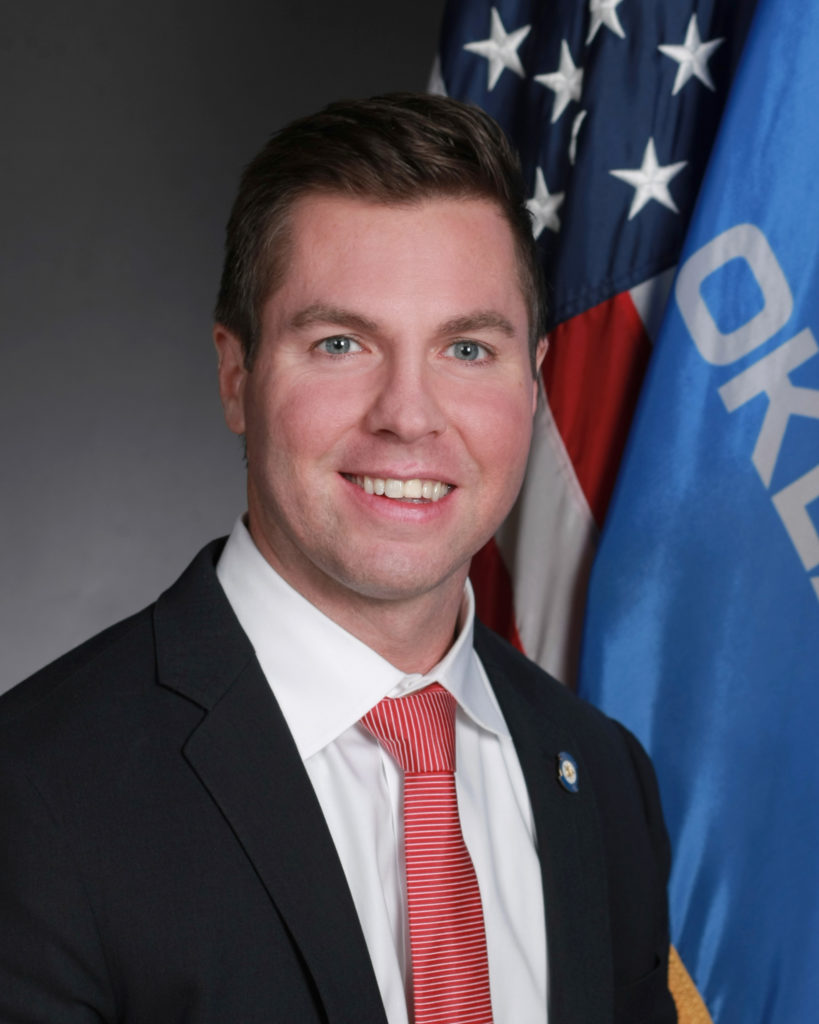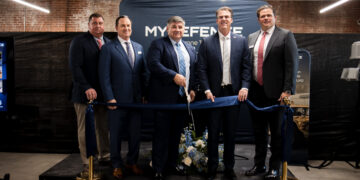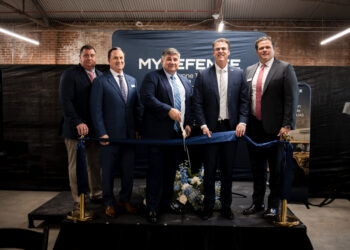OKLAHOMA CITY (OBV) – The Oklahoma Senate’s Education Committee passed a bill that seeks to grow the state’s workforce by incentivizing institutions of higher learning to launch degree programs that create the types of jobs Oklahoma’s workforce needs.

The Education Committee approved Senate Bill 1358 with an 8-3 vote. One committee member voted constitutional privilege.
SB 1358, written by Sen. Adam Pugh, R-Edmond, creates the Workforce Development Revolving Fund for the Oklahoma State Regents for Higher Education. The bill appropriates $200 million from the General Revenue Fund to the Revolving Fund. That money will be provided to post-secondary schools that create degree programs that would help the critically-needed occupations identified by the Oklahoma Workforce Commission.
The bill orders the Workforce Commission to identify those critical occupations.
“Originally when we worked through it, I thought about it just being accessible for higher education. However, in working with CareerTech and speaking to the [Oklahoma] Workforce Commission, I wanted it to be expanded access for trades, skilled positions and innovative solutions to workforce,” Pugh said while presenting the bill to the Education Committee, which he presides over as chairman.
The bill’s $200-million sticker price is a one-time fund, not a reoccurring fund.
“As those funds draw down, this body will have over the next few years the opportunity to decide if the program has worked,” Pugh said. “The goal of this program is – you’ve heard me say for several years – that I wanted to move higher education to an at-risk, performance-based funding. We’ve done that through some programs like engineering and nursing, but I think this kind of pushes us in that direction in totality.”
While other bills fund the needs of higher education, the funding SB 1358 provides ultimately fulfills the needs of the state’s workforce.
“This is specific for the degree programs, the certificates and the credential programs that the state of Oklahoma needs to grow our economy,” Pugh said.
Education Committee members asked Pugh questions about the bill.
Sen. Dave Rader, R-Tulsa, said the bill’s $200-million price tag is daunting. He asked Pugh if the amount was locked in. Pugh said he initially considered a lesser amount.
“When I originally started this legislation, I thought about $25 million; I thought about $50 million at one time. But as it opened up to CareerTech, as well as higher ed, I looked at what some other states were doing,” Pugh said.
Pugh referenced the Florida government dedicating close to $1 billion a year to higher education. He said Florida State University receives about $650 million a year as part of the Strengthening Alignment between Industry and Learning (SAIL) to 60 Initiative, which was created to increase the percentage of working-age adults in Florida with a high-value postsecondary certificate, degree or training experience to 60 percent by 2030.
“The institutions [in Florida] are being aligned to that statewide imperative. And then they’re being incentivized to provide programing in the jobs that are available for the Florida economy,” Pugh said. “And so, I thought [SB 1358’s fund amount] had to be a large enough number where you are truly providing incentives to align the degrees and the programs coming out of CareerTech, coming out of higher ed to be able to get them to align with the goal, to help the state of Oklahoma solve the workforce issue. So, that’s why I chose a much larger number than where I originally started at.”
Pugh said the state funds CareerTech, K-12 and the state regents separately, not by institutions.
“We have a unique system where we’re not able to reward individual institutions that maybe are going above and beyond in terms of producing a skill set or a degree professional that the state is trying to solve, for example, healthcare workers, engineers, teachers, etc.,” he continued. “So, by doing this, not through the state regents or through CareerTech, by doing it through the Workforce Commission, we kind of have the ability to have some control over what things we want to fund.”
Sen. Julie Daniels, R-Bartlesville, asked Pugh if the $200 million could change in the future from being a one-time fund to a reoccurring fund. Pugh said if the Workforce Development Revolving Fund is successful he would seek to turn it into a reoccurring fund. He said Florida was successful with its SAIL to 60 program because that state used a large dollar amount to get everyone’s attention about how serious they were in providing a skilled workforce for their economic growth.
“I know this is a large dollar amount. Could it turn into a perpetual ask? Potentially, it could. But one thing I didn’t mention, Senator [Daniels], at the at the end of session, I grew probably as frustrated as most of you with us taking even larger sums of money and chasing out-of-state, sometimes international, companies, and just paying them money to move here; and that was very frustrating for me because I felt like it was an arms race that the state was never going to win. The genesis was that experience, being asked many times to vote on something that I became uncomfortable with that was the right solution and voting no and instead saying, ‘Let’s focus on our workforce where we don’t have to pay companies to relocate here.’”
Pugh gave concluding remarks on the importance of SB 1358 after his colleagues finished asking questions about the bill.
“I remain convinced that if we give our citizens opportunities and we invest in them to create those opportunities, they will take those opportunities and be all that God’s called them to be. And for whatever reason, right now, we don’t have enough of our kids graduating from any of our institutions, K-12. We don’t have enough prepared for life after 12th grade, whether it be military life, CareerTech or higher ed. [Concerning] higher ed, we’re not graduating enough with degrees that we need in the state of Oklahoma. If it’s CareerTech, we’re frankly just not graduating enough, which we recognize as an issue as well,” Pugh said. “So, I will continue to try to champion the workforce issues for this committee and try to align our education institutions to solve some of our workforce needs in conjunction with the business community, in conjunction with the private sector, because I think it takes all of that working together. It’s not just step out of the way.”

















